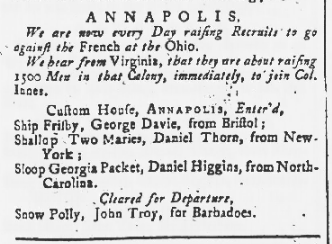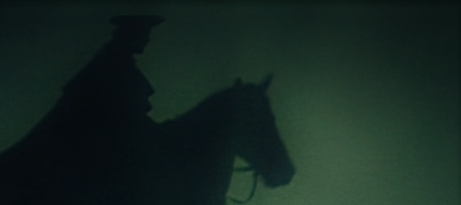From The London Magazine or Gentleman’s Monthly Intelligencer November 1767. A more detailed account of the execution. Including the statement that he died at 42 years of age.
If this report of his age is correct, he would have been born around 1725.
His age, at various reported events would be:
At his trial for sheep steeling in 1752: 27 years old
Trial for housebreaking in 1754 and subsequent transportation to the American Colonies: 29 years old.
Taking up residence in Knutsford in 1756: 31 years old.
Marriage to Katherine Birtles on 21st April 1757: 32 years old.
Baptism of first child: 23rd April 1757: Two days after wedding – Katherine must have had quite a bump under her wedding dress.
Flight from Knutsford after arrest in 1764 and then reportedly changing name to Hickson: 39 years old.
Which left him three years in which to set up home again, apparently keeping hunting dogs and living the life until he stopped living any sort of life at the end of a rope – or perhaps at the cut of a surgeons knife after being not quite hanged long enough.
The text of the account:
Account of the noted Higgins, [with modernised spellings and some notes]
We imagine the following particulars of the famous Higgins, (see p.529) will not be disagreeable to our readers.
Extract of a letter from Carmarthen to a Gentleman in Birmingham, dated Nov.8.
“On the 23rd of October the sheriff of Carmarthen received the warrant for the execution of Edward Higgins on the 7th instant [i.e. of this month], which was read to him, and which affected him greatly for a few minutes; but his spirits reviving, he said ‘I’ll get a reprieve before then,’
so on the 26th of October he wrote to some of his friends for one, which accordingly came down on the 3rd instant, of which the following is a copy:
Sir, Whitehall, Oct. 29, 1767
Notwithstanding his majesty’s royal mandate for that purpose, you are hereby required to postpone the execution of Edward Higgins, convicted at your last assize [court] for burglary, till further orders. Yours, etc.
Shelburn
To the high sheriff of the county of Carmarthen, or his deputy, the gaoler or his deputy.
On the arrival of this sham respite, Higgins’s wife and sister, in order to countenance the cheat, dressed themselves that evening in white, but the under sheriff suspecting reality of this respite, made all the enquiry he could about it, and finding it a forged one, went to the prisoner the evening preceding his execution, advising him to prepare himself for eternity, for that he would be executed the following day; to which Higgins said, ‘you are a scoundrel for suspecting so evident a truth; move me from this place tomorrow if you dare,’ cursing and swearing most shockingly all the time. The clergymen of the town, and especially the Rev. Mr. Rogers, the rector, and his curate, were very assiduous in administering good advice to him, which he regarded not, still insisting upon a respite, and offering to bet a thousand pounds on the reality of it, and saying, ‘you threaten me with the gallows, thinking I will confess many things, I must be a damned fool if I do.’”
Some account of the life and conversation of the noted Higgins, who was executed at Carmarthen, have been published at Gloucester and Bristol; from whence the following circumstances are extracted, viz.
“That in the year 1752 he was tried at Worcester for sheep steeling, but acquitted; that in 1754 he was tried on two indictments for housebreaking in that county and, being convicted, was ordered to be transported for seven years. The day before transports were to be sent off from Worcester, his sister came to him early in the morning and desired to speak with him in a private room; this was refused. She then requested he might have permission to show her the dungeon, thither they went and stayed some time in close conference. She had not left the gaol more than half an hour, when a farmer, who lived near Worcester, came in to enquire whether his sister had been there, for says he, ‘I have been robbed of 14l. [£14, a lower case L commonly used in print for pounds] and I have reason to suspect her, and that she has given the money to her brother.’ The turnkey told him what had passed. Higgins was searched, but nothing was then found. He was brought down to Bristol, put on board the Frisby, for Maryland, and delivered with the other convicts at Annapolis. The farmer who had lost the 14l. (as above) came with him from Worcester to Bristol, and when Higgins was stripped on board the transport, the farmer’s money was found concealed in the lining of Higgins’s hat; but as it could not be taken from him [why not?], the farmer was obliged to be contented with the loss of it [not sure how content I would be with the loss of a sum which had the buying power of well over a thousand pounds by 2017 standards]. He had not been landed a month in America before he broke open a merchant’s house at Boston [over 400 miles from Annapolis] and stole a considerable sum, and escaped on board a ship that was sailing for England, where he arrived in less than three months from transportation. On his coming to England he settled in Manchester, and afterwards at Knutsford in Cheshire, where he married a woman of a very respectable family, and maintained her very hansomely by his robberies.
He usually left his abode for a month or two, on the plea of going to receive his rents, and returned with plenty of cash. In one of these excursions he went to Bristol, and many suspect him of murdering Mrs. Ruscombe and her maid. However, on his return through Gloucester, he broke open Mr. Wilson’s house and stole a large sum in cash, for which he was taken at Knutsford, but escaped the constable. After a few months he showed himself under the name of Hickson and took a very handsome house at Frenchay, where he lived like a gentleman, kept a pack of dogs, a brace of hunters and associated with very respectable people in Bristol. In this manner he lived till about a year ago, when he was apprehended for returning from transportation [a capital offence]. Of this he was acquitted [how]. His character now becoming notorious, he made a trip into Wales, where he broke open Lady Maud’s house at West Mead, for which he was tried at Carmarthen, and hanged there.
Carmarthen, Nov. 12. “I am one who sat up with Mr. Higgins the night preceding his execution; we went to him about nine o’clock, and found him carelessly turning over Jenk’s Devotions [a collection of prayers and devotions to God, perhaps including prayers for the condemned criminal] which, on our entering the room, he laid aside, seeming to have not the leastrelish for that, or for any thing else, that was serious. He was at first very sullen, reserved and shy of entering into conversation; but when he found that we came not to ask him any impertinent questions or to give him serious advice, and as much as in us lay, to prepare him for his approaching fate, he soon as conversable as we could wish. He gave us (unasked) the history of his whole life from beginning to end, and cursorily mentioned all the crimes that had been laid to his charge from time to time; of all which, however, he solemnly affirmed that he was innocent. He evaded every effort we made to give the discourse a serious turn, and would not join in any devotion; so we forbore talking to him for a great part of the night, choosing rather to leave him to his own reflections.
He said he was going to die contrary to the laws of the land and added that as he was fully convinced that his respite was authentic, he should enjoin his wife to prosecute the sheriff with utmost rigour of the law.
His parting, on Saturday morning, with his wife and sister (who are yet in town, and inconsolable) was very affecting. His wife made several rash declarations against those who had a hand in his murder as she termed it.
When he set off for the place of execution he walked uncommonly fast and I am sorry to say, that when he came there, he was very inattentive to the prayers of the clergyman who attended him. He was desired, by some gentlemen present, to make a confession, but he insolently answered that he had no confession to make and that if he had, he would not so far gratify their curiosity. He was impatient of delays and seemed eager to mount the ladder, which he did with great alertness, saying, as he was going up, that his friends would take care to bring those who were instrumental in his death, to the very same death that he was going to suffer.
He was observed to pray on the ladder for some few minutes and then signified to the sheriff that he was ready to be turned off.
Some quick-sighted people whose optics [or imagination] are keener than neighbours, affirm that they saw him make make a cross upon the palm of his hand, from where they concluded that he was a Roman Catholic [it was quite common to attribute foul play to Roman Catholics] but, I confess, I saw no such thing.
After hanging about forty minutes, he was cut down and was the same evening buried behind the church. He was but forty two years of age.”
From this article we can pull out the following facts, taking note that the text that I have copied here is from an article which in itself copied from letters, one from an unnamed person in Carmarthen
- 1752 tried for sheep stealing at Worcester and acquitted
- 1754 convicted in Worcester on two counts of housebreaking in the county and sentenced to 7 years transportation.
- He was held in Worcester before transportation.
- Someone, proporting to be his sister, is meant to have stolen £14 and given it to him in the dungeon at Worcester.
- He was transported on the Frisby to Maryland.
- He stayed in America for just under a month.
- When in America he broke into a Merchant’s house in Boston, stealing a large amount of money.
- The time from transportation to his return was less than three months.
- After his return he stayed in Manchester, then Knutsford.
- In Knutsford he married a woman from a respectable family
- He would leave to ‘collect rents’ for a month or two
- He is suspected of the murder of Mrs Ruscombe and her maid in Bristol before he broke into Mr Wilson’s house in Gloucester, stealing a large sum of money.
- He was arrested in Knutaford for the theft from Mr. Wilson but escaped.
- He changed his surname to Hickson and set up home in Frenchay, Bristol.
- He was arrested for returning from Transportation, but aquitted.
- Higgins was hanged on the morning of Saturday 7th November 1767
- He was 42 when he was hanged
- He was buried behind the church (St. Peters Church in Carmarthen, I assume)






